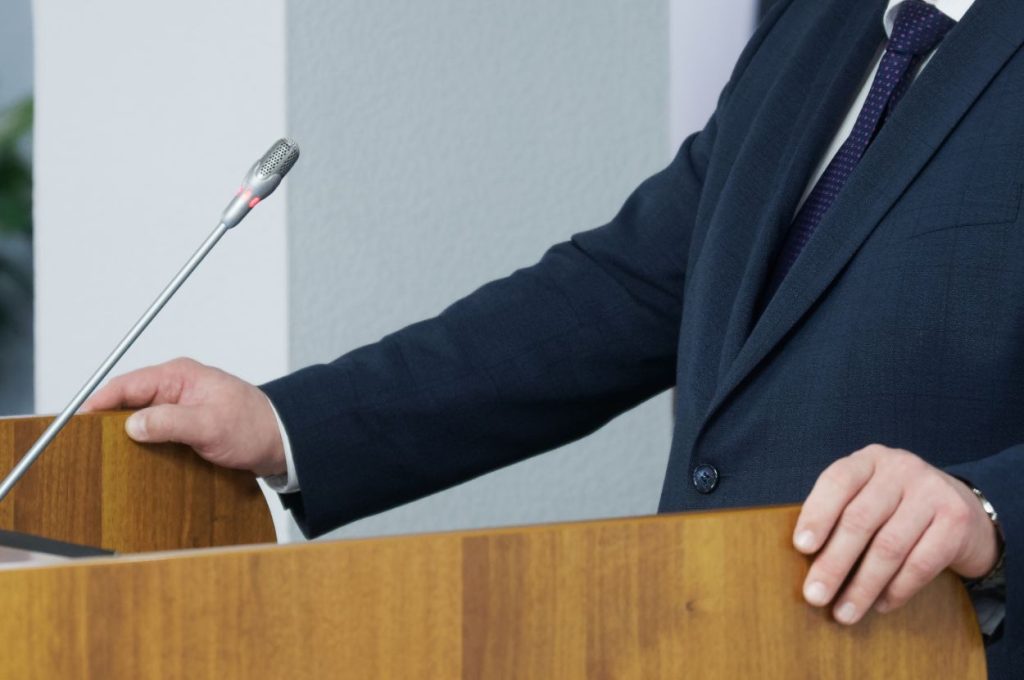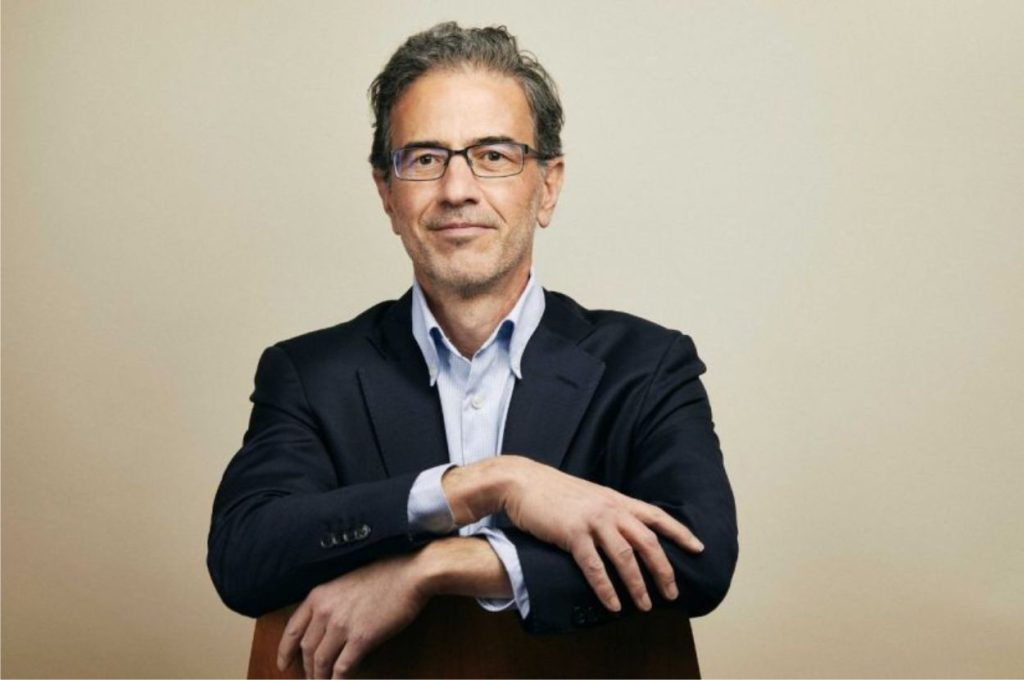The Co-author of “Spin Dictators”: In Many Countries, Spin Dictators Are Reverting to Violent Repression
Leaders in other countries have adopted techniques of spin dictatorship, manipulating the media behind the scenes, taking over the courts, and marginalizing the opposition — all while maintaining a democratic facade. Spin dictatorship is an attractive model of governance for leaders who want to consolidate their power as authoritarian rulers while keeping a modern economy and positive international reputation. Spin dictators want everyone to see them as competent, efficient, and benevolent public servants. They are not concerned if a small portion of dissatisfied intellectuals disagrees, as long as these dissenters are not promoted in the mass media. Crises that encourage citizens to rally behind their leader are useful in all systems, and spin dictators often exploit or manufacture such crises. These are some characteristics of modern dictatorships described in the book “Spin Dictators: The Changing Face of Tyranny in the 21st Century”, recently published in Serbian by the publishing house “Arhipelag”. In an interview with Istinomer, co-author Daniel Treisman explains the societies in which spin dictators emerge and persist, how they differ from traditional autocrats, and how thin the line is between spin and terror dictatorships.
*****
After the first edition of “Spin Dictators” in 2021, global politics has undergone huge changes, primarily, we are witnesses to the war in Ukraine which was started by one of the spin dictators described in your book. With the start of the war, Putin has unequivocally returned to the “traditional” dictatorship of fear. Similarly, in Venezuela and Turkey, their leaders have slipped into the terror of repression. At the same time, it seems that the recipe for a successful spin dictatorship has spread, so the number of leaders who base their power on spin is also growing. Do you still believe that dictators see the future of their governance in spin, or is it more likely that we will experience a more massive regression to the terror of fear on a global scale?
Yes, we’ve seen spin dictators reverting to violent repression in a number of countries – Russia, Venezuela, and Turkey, for instance. Essentially, the leader loses faith in his ability to keep control through sophisticated tactics. That’s not so surprising. To successfully deceive and manipulate a society even as its members become more educated, media savvy, and internationally connected, is very hard. The only place where leaders have managed to do this for a long time in a highly modern country is Singapore. Reverting to fear dictatorship is a last resort, when all else seems to have failed. It means that one has to try to block or reverse modernization. And since people do not usually want to go back in time, to lose free media, to see the economy become more primitive, that leads to large-scale emigration – as in Venezuela and, since the Ukraine war, Russia too. And, although oil can help for a while, that tends to lead to economic stagnation or even crisis. Their true support gets narrower and narrower, so they have to rely more and more on pure violence.
At the same time, as your question notes, in other countries leaders have been adopting the techniques of spin dictatorship, manipulating the media from behind the scenes, packing the courts, and marginalizing the opposition, all while preserving the democratic façade. This remains an attractive model for leaders who want to consolidate their power like authoritarians but to retain a modern economy and international respectability.
Could we see more regression on a global scale? It’s definitely possible because over time more spin dictators will have difficulty as their societies modernize. At moments of crisis, things can go in either of two directions – to a more democratic system, if the dictator does lose control, or to greater overt repression.
Which societies are prone and have predispositions to become spin dictatorships? Are states that have faced autocratic, repressive regimes in the past more susceptible? And on the other hand, are traditional democratic societies completely resistant to spin dictatorship?
Spin dictatorship is a form of authoritarian rule that can be combined with a relatively modern economy and open international relations. When countries are isolated and at low levels of economic development, dictators face few incentives to use spin rather than fear. With an agricultural economy – or even an industrial one engaged in mass production – fear can be used to keep ordinary citizens out of politics. But with an economy based on innovation, ideas, and international exchanges, terror has far greater economic costs.
In states that have been autocratic in the recent past, citizens may retain elements of latent fear that dictators can reactivate if they decide to revert to open repression. There will also be people who still have the knowhow to run the repressive machinery. And we see that democracies that have failed in the past are more likely than others to fail in the future.
From the other side, societies that have always been ruled by autocrats are more likely to settle for a fake democracy if offered one. They will focus on the surface similarity between the kind of elections held by a spin dictator and the more genuine type that occur in true democracies.
Is the fabricated (media) production of crises in spin dictatorships a substitute or an introduction to the dictatorship of fear?
It can be either. Crises that prompt citizens to rally behind their leader are useful in all systems. And spin dictators often exploit – or create – them. But, as we see with Putin, an external “threat” can also be used to justify a shift to overt violence. In all systems, wars tend to lead to a centralization of power and a rise in domestic controls. Spin dictators don’t need wars to remain popular. So starting a war is often a sign that the regime is reverting.

Can we expect that in the near future spin dictatorships will spread to some Western countries? For example, can we expect that Donald Trump, if he wins a second term, will approach the manner of governance by manipulation similar to spin dictators?
There are two ways spin dictatorships emerge. Some occur when authoritarian states develop into fake democracies. Others result from backsliding in democracies. It seems very likely that, if Donald Trump wins the US presidency in November, he will try again to undermine checks on his power, politicize the judiciary, weaken the press, and promote a distorted view of the world to his supporters – all techniques of spin dictators. Whether he succeeds in consolidating power and undermining democracy will depend on how much resistance he faces. In economically developed democracies with long experience, the forces of civil society – what, in the book, we refer to as “the informed” – are powerful. Such countries have millions of highly educated, internationally connected, individuals with organizational and communications skills – in journalism, law, civil service, NGOs, and many other professions. They are what account for the resilience of such democracies.
What is the best barrier to the development and rise of spin dictatorship in a society?
The best barrier against spin dictatorship is the existence of a large community of highly educated, socially active, internationally connected citizens with organizational resources and communications skills – what we refer to in shorthand as “the informed” part of society. These are the people who lead movements to expose and resist spin dictators. A second barrier is constitutional checks and balances and a constitution that is hard to amend. Viktor Orban in Hungary, Recep Tayyip Erdogan in Turkey, Hugo Chavez in Venezuela, and Vladimir Putin in Russia were all able relatively easily to change the constitution of their country in ways that consolidated their power. In the US, changing the constitution is much more difficult. Among other things, it requires the consent of three quarters of the state legislatures.
Can you explain the role of the media and media manipulations in the spin dictatorship and what is the mechanism for creating a unique, collective truth in a society, which is one of the characteristics of spin dictatorships?
Spin dictators do not always create a unique, collective truth. They want everyone to agree that they are competent, effective, benevolent public servants. But they are fine if a fringe of discontented intellectuals believes something else, so long as they are not championed by mass media. (In this, they are different from the classic fear dictators). Often, spin dictators are content to spread doubt rather than establish a single truth. They offer a buffet of different reasons to distrust the opposition and don’t mind which particular dishes each citizen selects.
Who else, besides the media, plays a crucial role in building a cult of personality?
We argue that cults of personality are characteristic of the old fear dictatorships. Spin dictators do not impose a rigid official ideology, require children to study their sayings, commission massive statues and murals of themselves, or encourage embarrassing public flattery. Instead, they cultivate “celebrity”. They’d like to be considered interesting and cool, rather than godlike. Of course, they want to be photographed, gossiped about, to sell merchandise – much in the style of a modern rock star, or even some Western politicians such as Obama or JFK. You could say this is the modern equivalent of the old cults of personality, but it’s actually quite different from the constructed public image of, say, Saddam Hussein or Chairman Mao.
You described in your book that elections serve as rating banks for spin dictators, that is, a means for consolidating power. Can states where the electoral will of citizens is manipulated (irregular elections) still be called spin dictatorships?
Manipulation of elections is one component of the model we call spin dictatorship. It goes along with other elements such as covert media manipulation, toleration of opposition politicians and media (but harassment of these), and international openness.
In the foreword of the latest edition published also in Serbian by the “Arhipelag”, you mention the President of Serbia, Aleksandar Vučić, whom you say uses spin mechanisms of governance, that is, staying in power. In what ways does the governance of Aleksandar Vučić correspond to the description of spin dictator rule?
Of course, we are not experts on Serbia. But press freedom advocates have noted that Vučić’s party has established control over many of the country’s TV stations and tabloid newspapers, and these offer a flattering picture of the regime. Meanwhile, opposition media complain of harassment. And Meta said recently it has closed down more than 5,000 “fake accounts” that were pretending to be supporters of Vučić and his party and posting positive messages about them. All this makes it hard to forget that the current President served in the 1990s as information minister under Slobodan Milosević.

